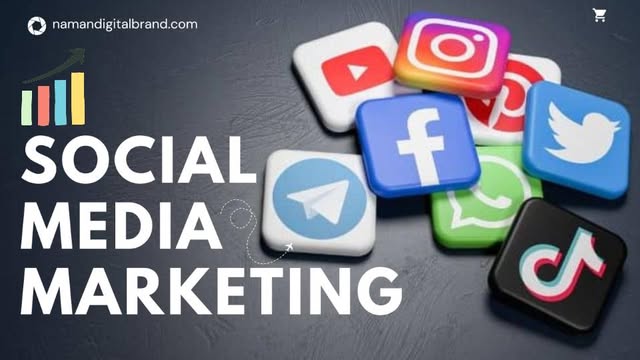Social Media Marketing (SMM) is a digital marketing strategy that involves using social media platforms like Facebook, Instagram, Twitter, LinkedIn, and TikTok to promote a brand, engage with audiences and drive website traffic. It helps businesses reach their target audience effectively and increase brand awareness through organic and paid strategies.
How to Use Social Media Marketing
Using Social Media Marketing (SMM) effectively requires proper planning, creativity, and consistency. Here’s how you can get started:
1. Define Your Goals
Decide what you want to achieve through your social media presence:
- Build brand awareness
- Drive traffic to your website
- Generate leads and sales
- Strengthen customer relationships
2. Know Your Audience
Before creating content, understand:
- Who your ideal customer is
- What platforms they use
- What type of content they engage with
3. Choose the Right Platforms
Select platforms that align with your business goals and audience preferences:
- Facebook – Great for broad reach, communities, and advertising
- Instagram – Best for visual content, reels, and stories
- LinkedIn – Ideal for B2B and professional networking
- TikTok – Perfect for short-form, viral video content
- YouTube – Effective for long videos, tutorials, and educational content
4. Create and Share Valuable Content
Content is the core of social media marketing. Focus on:
- High-quality visuals such as images, videos, and infographics
- Informative captions, tips, and clear calls-to-action (CTAs)
- A consistent posting schedule (daily or weekly)
- Use of trending hashtags and relevant keywords
5. Engage with Your Followers
Social media is about two-way communication. Make sure to:
- Reply to comments and direct messages
- Conduct polls, quizzes, and Q&A sessions
- Share user-generated content and testimonials
6. Invest in Paid Ads Smartly
Boost your content and reach with targeted ads:
- Use Facebook and Instagram Ads for audience-specific promotions
- Run LinkedIn Ads for professional and B2B marketing
- Promote videos through YouTube or TikTok Ads
7. Analyze and Optimize
Track and evaluate the performance of your campaigns using tools like:
- Google Analytics
- Facebook and Instagram Insights
- Engagement rate, reach, impressions, click-through rate, and conversions
Use the insights to refine and improve future campaigns
Benefits of Social Media Marketing
Social media marketing provides several advantages for businesses across industries. Here are the key benefits:
Increased Brand Awareness
Reach a larger audience and make your brand more recognizable through regular, engaging content.
Higher Website Traffic
Drive potential customers to your website by linking relevant posts, offers, and promotions.
Improved Engagement
Interact with your audience in real time, creating a sense of community and trust around your brand.
Cost-Effective Advertising
Compared to traditional marketing, social media advertising offers a lower cost with higher return on investment.
Better SEO Performance
Social media activity can increase your online visibility, leading to better search engine rankings and more inbound links.
More Leads and Conversions
With well-planned campaigns and effective CTAs, turn social media followers into paying customers.
Real-Time Feedback
Understand customer opinions, needs, and preferences instantly, helping you make quick and informed decisions.


